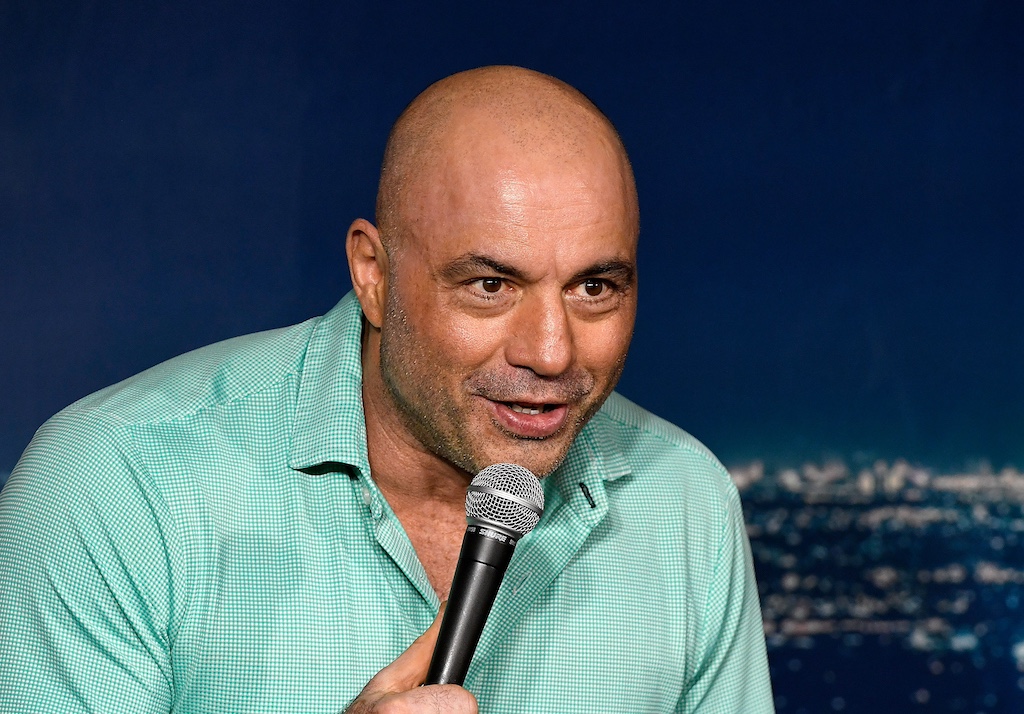Early in his preelection talkathon on Joe Rogan’s podcast, Donald Trump blithely suggested that even he couldn’t pinpoint just why exactly he got so much publicity during his first campaign.
“I know why,” the podcast host quickly interjected. “It’s because you say a lot of wild shit. People were tired of the bullshit, preprepared politician lingo. . . . The beautiful thing about you is that you freeball — you’re just talking. It’s like stand-up.” There’s truth to that: Trump’s lack of professional polish and no-shits-given candor — or the appearance of such — surely helps explain the appeal of MAGA to many Americans tired of stiffs in suits. Yet, Rogan might as well have also been talking about himself.
The fifty-seven-year-old comedian-turned-podcaster is now arguably America’s most influential media figure. His YouTube channel has nineteen million subscribers, and The Joe Rogan Experience (JRE) has held the top spot on the Spotify charts for most of the past half-decade. But he climbed up to that perch through the back door, as the anti-Pod Save America: the slick trio of Democratic insiders who parlayed their Washington connections in the Barack Obama White House to liberal podcasting fame.
Up until recently, Rogan was a political outsider, a former C-list celebrity who gradually gained millions of primarily male listeners over his show’s miraculous sixteen-year run. It’s a show where matters of the state once ranked lower than extraterrestrials, martial arts, and weed.
How he emerged this decade as the Bro King of Austin, Texas, MAGA’s top influencer, and, yes, a presidential kingmaker is — for better or worse — one of the defining stories of the decade.
…
Auteur: Ryan Zickgraf

